Alberta
Open letter to Canadians opposing Canadian pipelines and oilsands

Demian Newman is President of Newman Sales and Marketing Inc. based in Calgary.
Dear fellow Canadians,
I’m writing this as an open letter to every Canadian who has protested the Canadian oil and gas industry. I’m writing this to ask – what if you win? What if you succeed and completely shut down Canada’s oil and gas industry? What happens next?
Obviously, if you’ve ever marched, protested or argued against Canadian pipelines or Oilsands, you must believe that you are financially insulated from the hundreds of billions this industry puts into the Canadian economy. Or you are OK with the crushing blow to the Canadian economy, because your heartfelt belief is that the Canadian oil and gas industry is so environmentally bad for the planet.
These are the people I desperately want to have a conversation with.
I write this letter, not as a Calgarian, Albertan, or even as a Canadian. But I write this as a human being. A human being with two young children, and one who doesn’t go a day without being concerned about how we’re leaving this planet.
So, let’s say that all the anti-Canadian pipeline and oilsands campaigns finally crippled this industry, to a point it can’t rebound. Which feels like a real possibility these days. But what is not just a possibility, but a reality, is that Canadians without their own oil and gas industry would still consume the same amount of energy.
And as Canadians continue to consume 1.5 million barrels of oil per day, the amount we need to import from foreign countries would rise from the current 56%, to 100%. And as completely confused as I already am that we currently import 850,000+ barrels of oil per day, while having the 4th largest reserves in the world. I have absolutely no idea how anyone can think importing an additional 650,000 barrels a day is better for Canada or the environment?
Let’s start with where it’s coming from, with Canada importing 61% from the US, 12% from Saudi Arabia, 6% from Azerbaijan, 5% from Norway, and 4% from Nigeria. I’m going to skip past each of these countries environmental, safety, employee and human rights track records, as there’s no point defacing them when Canada’s oil and gas industry is the world leader in all of these. And I’ll expand on this later, but I thought for arguments sake, we can pretend all these countries have the same standards as Canada.
How could it possibly be more environmentally positive to drill oil in the Middle East, pipeline it to their ports, tanker it 10,000+kms across the ocean, and then deliver it to Canada? Remembering that we have it right here.
So, you’ve won, and there’s no more of what you believe is “dirty oil”. And now we’re importing an additional 650,000 barrels a day into Canada. Let’s not forget, that the 5% of the world’s oil production which Canada currently produces daily, would need to be replaced, or prices would inflate and everyone across the globe would have to pay more at the pumps. And more for the 1,000’s of items manufactured from oil.
But don’t worry about the extra cost, as no other country has an anti oil industry campaign against them, that has stopped or slowed them down like Canada has. And with technology getting better every day, Canada’s 5% worldwide production amounts will be easily replaced.
And let’s go full circle to the Canadian’s protesting new Canadian pipeline projects. If we eliminate our own industry, and we’re importing 650,000 extra barrels of oil daily, we’ll have no other choice but to build new pipelines and facilities to bring this additional oil from the US pipelines and foreign tankers.
So, wouldn’t that be an ironic punch in the face. Where Canadians protesting Canadian owned and operated pipelines, end up shutting down all the investment it takes to move Canadian resources through Canadian pipelines. Just so we are forced to build pipelines and facilities to move more foreign oil into Canada.
And I mentioned that we’d pretend all countries have the same environmental requirements and standards when exploring and developing their natural resources. But it isn’t even close.
You can Google articles with examples of Canada’s environmental standards in this industry, versus any other country. But instead, do yourself a favour and ask someone who’s worked in Canada’s oilpatch, and around the world. Every one of them has countless stories of horrendous environmental issues abroad, which haven’t been allowed in Canada in 30+years (or ever).
So, let’s look at what Canada’s environmental standards are for this industry. And by that, I mean you should go look it up. Don’t take my word for it, but find some reputable publications and factual documents, and not someone’s rambling blog.
Look it up, and please let me know if I’m wrong. Because as much as I needed to write this letter, to get a few things off my chest. I also wrote it, as I believe everyone needs to do better at having a conversation about climate change, the environment, and our responsibility to all do better.
So, I welcome the opposing opinion, as I don’t know why this topic has become a name calling divisive shouting match, where no one will listen to the other side.
But while I have you here, I did want to throw out a couple specific projects, and how protesting them doesn’t make any environmental sense to me. One is Energy East, and the other is BC LNG. The first one is dead, but my fingers are crossed that it can be revived. The second is still approved, for now.
If you look at a map of Canadian pipelines, there is no major pipeline going from Alberta to the east coast of Canada. This means that almost every drop of gas in every vehicle east of Winnipeg is from refined foreign oil. The amount of oil that would’ve travelled on the Energy East pipeline is almost the same amount of oil that we import from Saudi Arabia every day (roughly 100,000 barrels a day).
But what if we didn’t protest Energy East, and instead told the Premier of Quebec that he cannot block a national pipeline. Eastern Canadians would’ve paid (at a minimum) $10-$15 less per barrel than they are currently paying for Canadian oil versus foreign oil. But there was also the billions (not millions, but billions) in revenue that each province would receive from this pipeline running oil through their province.
And I know we’re focusing on the environment, and not the financial benefits of Canada’s oil and gas industry. But, the trick with clean energy and technology, is that it takes money to develop and get to market. So I could be wrong, but I’m almost certain that not one oil company would’ve been upset if Quebec hadn’t killed this pipeline, but instead, took their multi billions a year in revenue from it, and invested all of it into new clean energy technology.
Another thing I encourage you to Google, is the amount of new clean energy technology that has been developed by, and for, Canada’s oil and gas industry.
So, Energy East would’ve taken the amount of Canadian oil, which they are already buying from foreign countries, while generating a ton of money for Canada/Canadians. And then that money could’ve been invested into renewable green energy development. But, Climate Change is a world wide problem, not just a Canadian one. So, as crazy as this might sound, I do believe that BC building facilities to ship Canadian liquid natural gas (LNG) to the world, could have an incredibly positive carbon emissions net benefit.
Currently, China alone has over 700 super coal plants. Just one of them emitting almost as much CO2 as the entire Canadian Oilsands (this is easy to look up). So, what if we could help China get their energy from Natural Gas instead of Coal, as it’s WAY better for the environment. (Side note – also look up Natural Gas and its carbon footprint, as I find very few people realize that it has been unfairly lumped in as a dirty fossil fuel).
And very quickly, I would like to address how we got here in the first place. Why is the perception of Canada’s oil and gas industry so bad across the rest of Canada?
The industry really must start by looking inward, as it has done a very poor job of promoting itself and the strides it’s made over the years. And it can still improve. As can all of us individually.
Because who outside of the industry knows that the Oilsands greenhouse gas emissions have dropped 29% since 2000. Or that a barrel of oil sent from the Oilsands to a refinery on the US Golf Coast has a smaller carbon foot print than a barrel of oil traveling from an oil well in California (it’s small difference, but it’s still better).
And to understand why it’s tough for this industry to promote itself – it is Canadian after all, which explains a lot about its uncomfortable feelings towards self-promotion. And I’ve met a ton of extremely intelligent and thoughtful engineers, geologists, accountants, and tradespeople in this industry, but I’ve never met a Public Relations person – and if there is one, they are very underfunded.
Who is not underfunded, are the groups who make an extraordinary amount of money from Canada not being able to get its natural resources to other customers (the US is our biggest customer at 99%, which is a percentage no business can survive with). And you can’t blame these people for making money off Canada’s inability to build pipelines. But, how they’ve done it, by spending hundreds of millions on PR campaigns to smear Canada’s industry, and pitting us against each other, is beyond is infuriating.
If you only look up one item, please do some research on how openly organizations have been about making donations in the name of the environment, which only target one country’s oil industry. This has made a lot of headlines lately, but I’ve read national Canadian media articles investigating this as far back as 2010.
In conclusion, I would like to point out that I tried my best to use as few statistics as possible, as I’ve seen arguments get derailed with debates on stats. As if the $80 million that Canada losses every day due to no pipeline capacity, is any different if its $40 million or $100 million. It’s a lot of millions, that have turned into billions. And it’s costing hundreds of thousands of good hardworking Canadians financial hardship.
And if it saves the environment, and the planet, then there certainly is an argument for it. But if it’s not helping at all, and potentially harming the planet. Then everyone needs to get educated on all the facts and start to talk to each other about a real solution. And get our industries, politicians, and every Canadian on board with a solution that works.
And please, please, please, don’t take your information from this subject off some rogue website, that’s for or against my stance. Take the time to get your facts from vetted and fact checked publications.
No one should get their facts from a nameless person shouting on the internet. So, my name is Demian Newman, and the two kids I’m leaving this planet to are Olivia and Liam. And both of them need to grow up in a country which is thriving as a world leader, both economically and environmentally – as anything less would be un-Canadian.
Sincerely,
Demian Newman
p.s. If you don’t have time to look up information on everything I’ve mentioned above. Here are a few links:
This first one is on personal energy use and personal accountability. Fun fact: If each of us does a better job to minimize our individual carbon footprint, the industries selling it won’t need to produce as much. Scary fact: literally every economist has said we will use more energy each and every year. This article does a good job expanding on that.
https://www.c2cjournal.ca/2018/12/03/we-have-met-the-carbon-enemy-and-he-is-us/
https://www.nrcan.gc.ca/energy/oil-sands/18091
https://ipolitics.ca/2014/07/18/how-clean-is-our-dirty-oil-youd-be-surprised/
Newman Sales and Marketing Inc is a full service sales and marketing firm representing independently owned and operated oilfield service companies.
Originally published January 2019
If you enjoyed this story, you might also like this story from Sheldon Gron. Click the image below:
Alberta
World’s first direct air capture test centre to open doors in Innisfail

From the Canadian Energy Centre
Deep Sky Alpha facility will trial technologies that suck CO2 from the sky
Innisfail, Alta. is set to host the world’s first test centre for technology that removes carbon dioxide directly from the air to fight climate change.
This June, Montreal-based Deep Sky completed construction of a $110-million carbon removal innovation and commercialization centre in the town about 120 kilometres north of Calgary.
It is a key piece of the company’s vision to build 100 large-scale facilities across Canada and become a pioneer in the emerging market for direct air capture (DAC) technology.
“As of this summer, we will begin not only carbon removal, which is actually sucking it out of the air through these very powerful fans, but also liquefying it and then putting it underground for storage,” Deep Sky CEO Alex Petre told CTV News.
Work began in August 2024 on the project known as Deep Sky Alpha, which aims to begin testing up to 10 different DAC technologies in real-world conditions. It is expected to be up and running this August.
The Government of Alberta is investing $5 million in the facility through Emissions Reduction Alberta.
Deep Sky’s facility will capture up to 3,000 tons of CO2 per year over the next 10 years, with room for future expansion.
Captured CO2 will be transported by tanker trucks about 200 kilometres north to Sturgeon County where it will be injected more than two kilometres below the surface into the Meadowbrook Carbon Storage Hub.
Operated by Bison Low Carbon Ventures, the project is the first approved under Alberta’s open-access carbon sequestration hub initiative and is expected to begin operations before year-end.
“We’re going to line up these eight units side by side and run them to see how they operate in the summer and in the cold of winter,” said Damien Steel, former Deep Sky CEO who continues to serve as a company advisor.
“We’ll be tracking everything to see how all these best-in-class technologies compare – what are their strengths and weaknesses – so that ultimately we can choose the best solutions to scale up for the major commercialization of carbon removal projects that are needed.”
Unlike typical carbon capture and storage (CCS) projects that scrub CO2 from the exhaust of heavy industrial facilities such as power plants, refineries, cement plants or steel mills, DAC utilizes different technology to remove much lower concentrations of CO2 directly from the atmosphere.
According to the International Energy Agency (IEA), there are 27 DAC plants operating worldwide, capturing almost 10,000 tonnes of CO2 per year. In order to reach net zero emissions by 2050, the IEA estimates DAC capacity must expand to more than 60 million tonnes per year by 2030.
Deep Sky selected Alberta for its test facility because of the province’s experience with CCS, including its advanced regulatory system for CO2 sequestration.
“To be successful at carbon removal you need three things: you need access to geologic storage, you need talent, and you need a reliable supply of renewable power to operate DAC facilities. Canada is blessed with these things, and Alberta especially has all of these attributes in spades,” Steel said.
Deep Sky Alpha is one of several clean tech projects underway in a five-acre industrial park in Innisfail as part of an economic diversification plan that was launched in 2022 to make the town a centre for energy innovation.
A municipal solar farm and a power plant that burns garbage and will be equipped with CCS to eliminate emissions are also under development.
Deep Sky says that more than 110 jobs were created during the construction phase of its Innisfail project and it will employ 15 people for annual operations.
Subsequent commercial plants it hopes to build across Canada will employ approximately 1,000 workers for construction and 150 for annual operations.
Steel said he expects the DAC test facility will become a destination for those looking to advance CCS projects around the world, showcasing Canadian expertise in the process.
“My hope is that not only will we learn and improve carbon removal technology, but we will also put Canada on the map in terms of being a place where innovation can thrive and this industry can work,” he said.
“It will be a place where corporate leaders, government officials and customers from around the world can come and see what direct air capture really is, how it works, and how Canada is the place to do it.”
Alberta
Alberta’s savings trust fund jumps by $2.8 billion, hitting a record high of $30 billion.

Alberta’s Heritage Fund reaches new heights
Alberta is growing the Heritage Fund for what matters most – saving for the future to ensure a strong health care system, quality education and the lowest tax environment in Canada. By investing in the Heritage Fund, by 2050 Alberta will be on the path to energize its economy, create new opportunities and fund projects that make life better for all Albertans.
This $2.8-billion contribution marks a new record for the fund and keeps the province on track to reach its goal of $250 billion by 2050. The goal is to grow the fund to the point where, after 2050, Alberta would be able to withdraw some of the income the fund earns each year while still allowing it to grow over time. Those withdrawals could help cover fluctuations in resource revenue, invest in important infrastructure and keep taxes low.
“Alberta is turning resource strength into lasting financial security. By growing the Heritage Fund, we’re strengthening core services like health care and education, while preserving the low-tax Alberta advantage. This $2.8-billion boost to the Heritage Fund is a bold step that sets the province on the path to success and puts Albertans first.”
“This investment is a key step in securing a prosperous future with stable revenues and competitive taxes for Albertans today and tomorrow.”
Alberta’s government recently launched their plan, Renewing the Alberta Heritage Savings Trust Fund: A Roadmap to Securing Alberta’s Future. This plan outlines how Alberta will grow the Heritage Fund to $250 billion by 2050 through strategic investments, global partnerships and strong governance, securing long-term economic growth and stability. These strategic investments will eventually fund the public services and infrastructure vital to supporting the growing province.
Central to the plan is the leadership of the Heritage Fund Opportunities Corporation. The updated corporation will modernize the fund’s management and help Alberta access global investment opportunities to create meaningful wealth and future prosperity. Led by board chair Joe Lougheed, the corporation will strengthen the governance of Heritage Fund assets and support investment decisions independent from government.
“Our role is to ensure the Heritage Fund is managed with the highest standards of governance and independence. By embracing global opportunities and modernizing oversight, we’re safeguarding Alberta’s wealth to deliver steady, long-term prosperity for Alberta’s future generations.”
This historic boost to Alberta’s Heritage Fund isn’t just about the numbers – it’s about building a future where families thrive, communities grow and Alberta stays strong no matter what comes next.
Quick facts:
- Alberta’s government invested $2.8 billion from the 2024-25 surplus cash in the Heritage Fund, growing the fund to $30 billion from $27.2 billion in 2024-25.
- This is up from $22.9 billion in 2023-24, the previous fiscal year.
- Alberta’s goal is to grow the fund to $250 billion by 2050.
- Once $250 billion is reached, interest from the fund will help stabilize resource revenue, invest in infrastructure and keep taxes low.
- Since 2019-20, the Heritage Fund has grown more than 84 per cent:
- from $16.3 billion to $30 billion.
- Since 2022-23, the Heritage Fund has grown more than 41.5 per cent:
- from $21.2 billion to $30 billion.
- The board of the Heritage Fund Opportunities Corporation brings together the skills and expertise of Alberta and international leaders in investment management to set Alberta up for long-term success. The current members are:
- Joe Lougheed, board chair, Alberta
- Kate White, director, Alberta
- Jacqueline Curzon, director, Switzerland
- Jouko Karvinen, director, Finland
- Chana Martineau, director, Alberta
- Mary Ritchie, director, Alberta
Related information
-
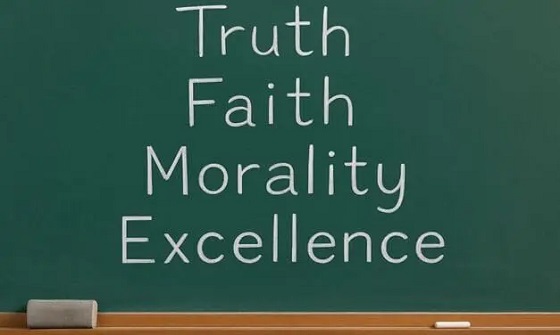
 Education1 day ago
Education1 day agoWhy more parents are turning to Christian schools
-
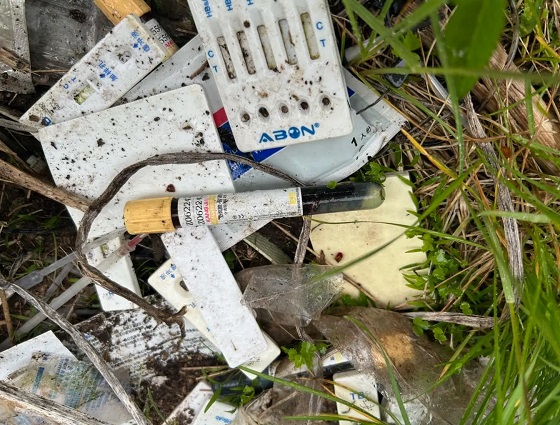
 Immigration2 days ago
Immigration2 days agoUnregulated medical procedures? Prince Edward Islanders Want Answers After Finding Biomedical Waste From PRC-Linked Monasteries
-

 Business2 days ago
Business2 days agoDemocracy Watchdog Says PM Carney’s “Ethics Screen” Actually “Hides His Participation” In Conflicted Investments
-
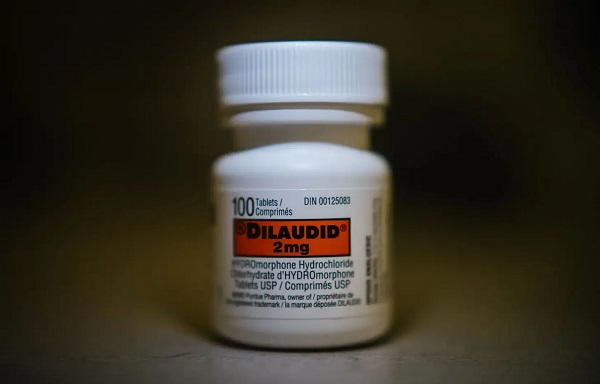
 Addictions2 days ago
Addictions2 days agoAfter eight years, Canada still lacks long-term data on safer supply
-
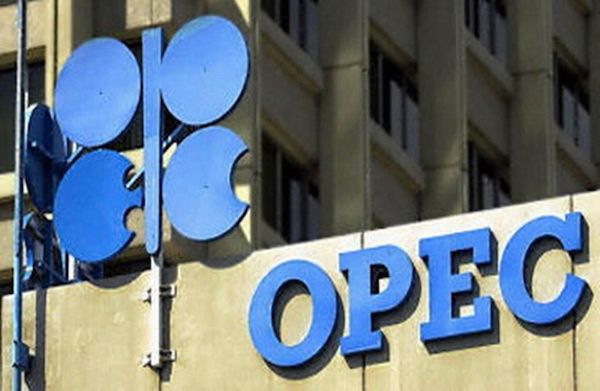
 Alberta1 day ago
Alberta1 day agoOPEC+ is playing a dangerous game with oil
-
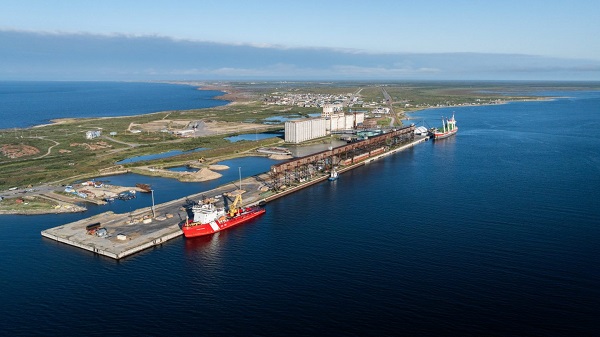
 Alberta1 day ago
Alberta1 day agoUpgrades at Port of Churchill spark ambitions for nation-building Arctic exports
-
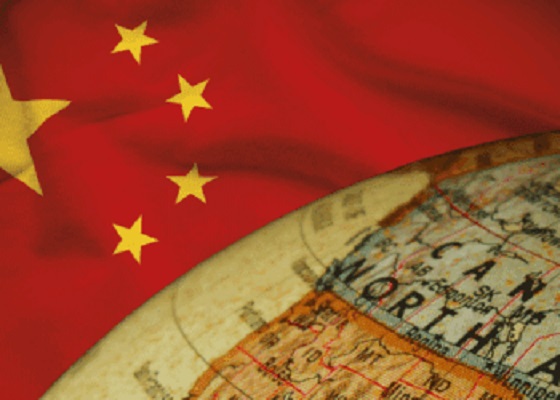
 Business1 day ago
Business1 day agoIs dirty Chinese money undermining Canada’s Arctic?
-

 National2 days ago
National2 days agoLiberals push to lower voting age to 16 in federal elections









